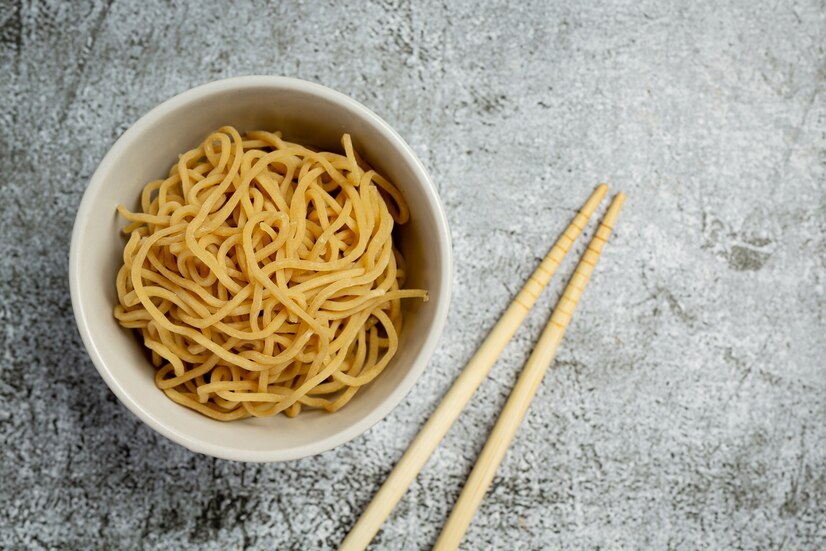Wheat noodles are a type of noodle made from wheat flour and water. Modified tapioca starch can be used in wheat noodle production to improve the texture and handling properties of the dough, as well as to enhance the elasticity and moisture retention of the cooked noodles. The starch can also help to reduce breakage during cooking and to prevent the noodles from sticking together. Additionally, modified tapioca starch can improve the freeze-thaw stability of wheat noodles, making them more suitable for long-term storage and transportation.
Modified tapioca starch can provide benefits for wheat noodles. Some of the benefits of using modified tapioca starch in wheat noodle production include:
- Soft and elastic texture: Modified tapioca starch can improve the texture of wheat noodles by making them softer and more elastic.
- Dough handling and sheeting: The modified tapioca starch can improve the handling and sheeting properties of wheat noodle dough, making it easier to work with and resulting in a more consistent product.
- Remain moisture in noodle: Modified tapioca starch can help to retain moisture in the noodle during cooking and storage, which can improve the overall quality and shelf life of the product.
- Elastic texture: The addition of modified tapioca starch can help to create a more elastic texture in the wheat noodles, which can make them more enjoyable to eat.
In summary, modified tapioca starch can play an important role in the production of wheat noodles by improving their texture, handling properties, and moisture retention.

